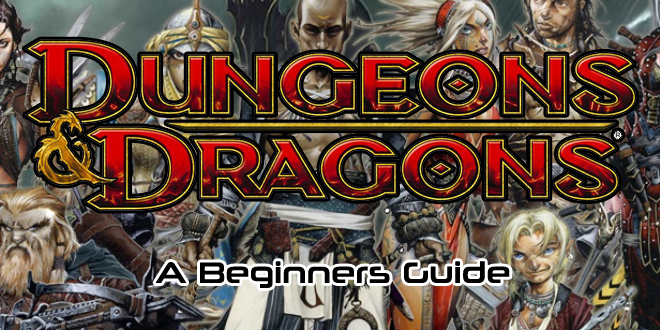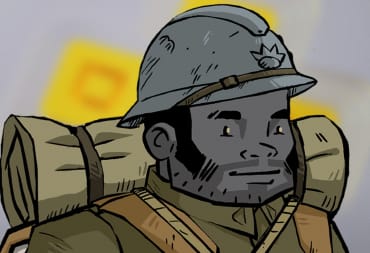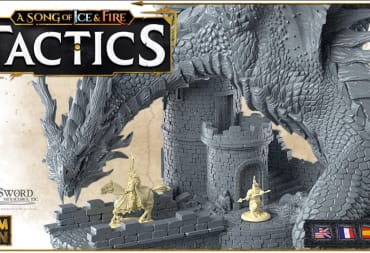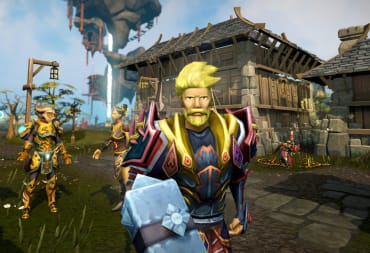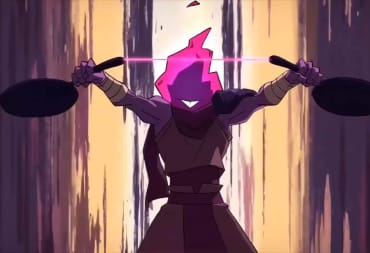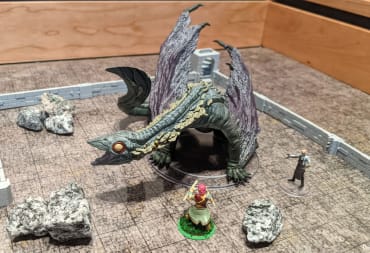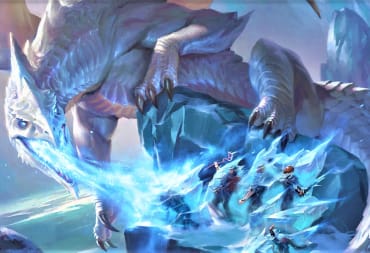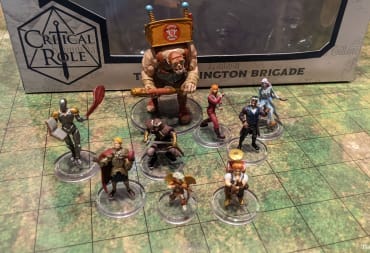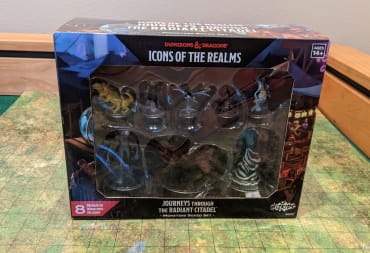If you've ever for a second considered getting into pen and paper roleplay, most likely the first system you've considered is Dungeons & Dragons, the quintessential tabletop RPG that defined the genre. Getting into roleplay can seem very daunting. So the most logical way to go about it is a simple look into what first starting a D&D campaign as a player is like. So here are some perspectives and a brief guide from a new D&D player, for a new D&D player. These are the trials of a bunch of newbie adventurers. Keep in mind that the beauty of roleplay is every adventure is unique and driven by the imaginations and personalities of the DM and players, so results will vary. A lot. This campaign was run using D&D v. 3.5 but much of it can apply to any campaign. This article will include a mechanical explanation of the topic and an actual look at how it unfolds in game.
How you are born into the world of Dungeons & Dragons is kind of like a personality test, especially when you have never experienced it before. The choices you make most likely aren't determined by practicality (unless of course, that is a part of your personality), but more by how you, personally, approach and interpret problems. And then every little detail after that is all about your vision of what is, for lack of a better word, awesome. Roleplay games seem to have a special way of actually bringing together many vastly different personalities, locking them into a room, and telling them to defeat a mutated rat and interrogate a local innkeeper. And this is good because while certain classes are technically "better,"the only way you succeed is if you have multiple perspectives when you run against obstacles.
Step Zero: I Don't Understand A Word You're Saying
Here's a rough rundown of some common terms you'll hear when talking about Dungeons & Dragons. This isn't comprehensive—you'll learn a lot on the go. But for the purposes of this article, it should be helpful.
d20, d6, d100, etc. – Anytime you see or hear "d-number" it's referring to a die and how many sides (or theoretical sides) it has. Your most important one is your d20, but depending on your character you'll need more than that.
Modifier – anything that you add to your base role. The majority of the time in D&D you'll be rolling a d20, for everything from attacks to skills to determining if the local innkeeper believes you. Depending on your ability and skill scores, you can add a certain amount to that roll. This is crucial as it very often can mean the difference between success and utter failure (for example, if you roll a 10 to attack, but you have an attack modifier of +5, your roll is now a 15, a far better roll).
DM – Your DM is your dungeon master (sometimes called the game master), the person who runs the campaign. They're also your reference to everything, because few things are sacred in the land of pen-and-paper roleplay. Your DM may have their own way of running the show, so be sure to always consult with them, especially if you want to do something bizarre with your character.
Step One: Existentialism
Before you even start, ask yourself: who am I? Not like that, it's not quite as complicated. But if you know what you're into, that reduces some of the questions that go into picking your character. For some, the answers might be instantaneous. You may not know how you solve problems, but something tells you that you'll solve them best if you play a sorcerer. For others, you might need to think a little bit. Maybe you know how you solve problems, but you don't know which class best suits that. Or maybe, you want to explicitly make a character that's very different from how you usually are, to challenge yourself. You should also consider in general what makes a character amazing in your eyes, what are you into, what characters do you prefer playing in MMOs—anything to narrow down your choices.
For example, my goal in making a character was that I wanted one focused on animals. I wanted a character where I could essentially befriend any woodland creature I came across and make a small army of cheerful pets. Luckily, there is an obvious choice for this goal: the Druid class.
While most likely the biggest part of your pre-brainstorming process is picking a class, how you want to play could impact your starting weapons, your skills, your race, so keep in mind as big a picture you can. Or, if you prefer to go in completely blind (or just can't think of anything no matter how hard you try) you can always use the ultimate magic of the Internet to do the thinking for you. I recommend "Who The Fuck is my D&D Character," which will provide you with a class, race, and brief characteristic to get you started.
Step Two: Picking a Race
In edition 3.5 there are seven standard races to choose from: elf, half-elf, human, dwarf, halfling, half-orc, and gnome. There are also dozens of other races to choose from though, and depending on the rules your DM sets out, you could potentially choose any of them. The importance of your race is in how well it works with your class (or doesn't work if that's part of your character) and the bonuses and perks certain classes have, not just in skills but in how they interact with the world around them. For instance, the cliche of elves and dwarves not getting along is ever present in the game, and can impact how your character interacts with the universe. If you decide to pick an elf, then interacting with most dwarves becomes a bit more precarious. Pick a half-elf? Then likely everyone (including your own party, frequently) will mistake you for either an elf or a human, which can either hinder or help depending on the situation. Pick a halfling? Everyone will probably make short jokes (you're basically playing a hobbit).
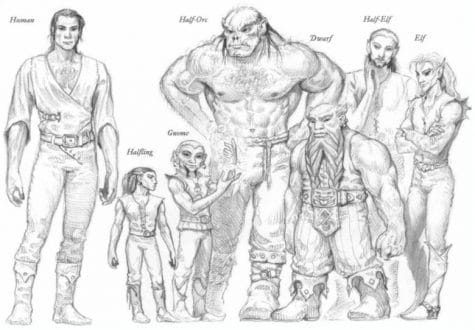
The complete list of playable races is very intimidating, and all have their own perks. If you're brand new, unless you have something specific in mind, it's best to stick to the core classes to start. Your first campaign you will likely meet creatures and NPCs of many of the alternative races, and from there may find something you're more interested in for the next time. Most core races also have a favored class, and if you select that favored class, you gain some benefits—primarily you take less of a hit to experience if you decide to multiclass (don't even worry about multiclassing until much later though).
Your race also determines a lot of the incidental characteristics your avatar will have, particularly in appearance—keep in mind some matters of appearance are fixed based on race. Elves and half-elves always have green eyes. Dwarves are always a little shorter than elves and humans, who are always a little shorter than half-orcs. Other characteristics can have some slight variations. While you might not think your physical appearance matters much, it does. If for no other reason than to create a complete character—after all, you're not playing a massless ball of energy. Your character must look like something.
[scribd id=308475261 key=key-9E11zJ8BUylhPSbAg1F4 mode=scroll]
Keep in mind as well that most races have a typical alignment. (If you have used the Internet, I'm assuming you know what alignments are, but we'll talk about them a little bit in the context of the game later). They aren't listed because, technically speaking, you can pick any alignment you want for your RACE. It is your class that will likely have a bigger impact. Just keep in mind it may be easier to roleplay as a races' typical alignment than as one that directly opposes it. They're also often dependent on your character's backstory or where they grew up. For instance, half-orcs who grow up among orcs would be more likely to be chaotic evil. Races that grow up in highly organized societies will lean more towards lawful, usually lawful good or neutral. Most races are inherently good or neutral. Whether they are lawful or chaotic depends highly on their upbringing—regardless of race, most creatures who grow up in complex, organized societies are lawful, whereas creatures who live in isolation or small encampments will lean towards chaotic or neutral.
Step Three: Picking Your Class
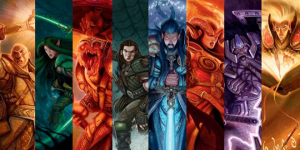
Your class is by far the most important part of your character—more than race, more than pretty much any other factor. This determines how your character will fight, but also how they will interact with others, what items they need, what specialties they have, what problems they can solve easiest, and what their biggest limitations are. There are eleven core class types in e3.5 (Barbarian, Bard, Cleric, Druid, Fighter, Monk, Paladin, Ranger, Rogue, Sorcerer, and Wizard), but there are others depending on expansions or the editions your DM allows. Later you may also gain access to prestige classes, concentrations, and epic classes, but this will likely be far later in your campaign. For now, pick your starting class. This is where your problem solving and personality comes into play. Some classes have very specific usages, whereas others may have more options and focuses for you to explore. Keep in mind that later you can choose to multiclass if you find you want something more to your kit, or if you simply want to start a new class without making a whole new character (you'll still have to start over with your new class from level 1 though, so try to pick something you'll consistently like).
This is the most intimidating part of making a character. There are some classes that come bundled with such an enormous amount of information it's impossible to sort through and actually get a good idea of what you're getting into. In addition to skill boosts and determining how you level up, you also get access to unique abilities and buffs. Take this as a guide to perhaps lead you in the right direction, then go find the more detailed class info on your own. I recommend the D&D Wiki to start off.
[scribd id=308521148 key=key-dWIMnFsLVl0rOTY6o8sl mode=scroll]
Step Four: Fun With Numbers (Ability Scores, Skills, etc)
Now break out a calculator. It's time to do some math. This is probably one of the most daunting parts of making a character, but it actually isn't as complicated as it looks. First, your ability scores. Every character has the six basic abilities that determine the capability, and to some extent the personality, of your adventurer. There are Strength, Constitution, Dexterity, Intelligence, Wisdom, and Charisma. If you've played a lot of RPGs, you're probably roughly familiar with these, but let's pretend you aren't.
Strength determines your ... well, strength. Not only does this impact your attacks, but also has some influence on how much you can carry. Constitution is moderately vital to nearly every role, as it determines your health and hit dice. Dexterity determines your agility and is important for ranged fighters (all ranged weapons use Dexterity as a modifier, not Strength). Intelligence is your book smarts, and the go to for most arcane casters. Wisdom, on the other hand, is your street smarts and important for Monks and Druids. Charisma is essentially your believability—how easily you can talk your way out of situations, communicate with others, and be diplomatic. You'll notice these don't just influence your raw stats, but how your character actually behaves. A character with a high Intelligence, but low Wisdom, for example, would come off as the "absent minded professor" type, clearly knowledgable but not able to put it to practice. As such, when you set out to determine your ability scores, keep in mind not only your class and fighting style, but the personality of the character you've made. If your character is meant to be a buff but stoic adventurer, then he doesn't need 14 Charisma, better off to put it in your Strength or Constitution. (That said, if you don't know the personality of your character, then what you roll for your ability scores might help you figure out exactly what they're like). 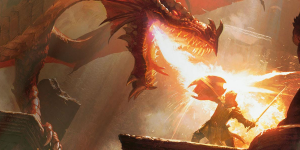
Before you even start, consider your class and race and figure out where you're going to put your highest scores. Most of the classes have some specific ability that they scale their magic or skills off of (Paladins use Charisma, Sorcerers and Wizards use Intelligence, etc). You should also pick one or two secondary ones that you will put your other higher scores into, but these are mostly based on preference. Finally, pick one ability you don't care as much about. Save this one for your lowest score. You want to make sure you determine this ahead of time, because if you do it on the cuff, as you're rolling your scores, you might not take into account other unseen factors you didn't think about or the full structure of your team.
After you determine all your ability scores (how you get the scores themselves varies, but usually you'll just be rolling a bunch of d6 and adding them together), you can start applying those to your skills. All classes have skills they specialize in where they get to put additional points, and some races also get perks in certain skills. Any universal skill—any skill you don't have to train essentially—you can put your modifier into. Your modifier, in this case, is based on how your ability compares to the average of 10. So if you have a Strength of 16, your modifier is +3. If you have a below average ability though, you get a negative modifier, so a Strength of 8 would give you a -1. Here's a nice summary of abilities and ability modifiers.
Step Five: Your Alignment
Alignments are one of those things that a lot of players think about quite a bit, possibly overly so. In truth, unless you decide to pick a deity or if you pick a class where alignment is a factor, your alignment is not the biggest deal. How it is enforced can depend highly on your DM, and if you do have class requirements for it, the biggest impact is if you act far outside the behavior expected of your alignment, you can lose experience. If you are careful about it though, this shouldn't be a big issue. Unless you're up for the challenge, you should try for an alignment that is already similar to your moral compass (assuming your class allows that).

If you aren't as familiar with alignments, it's easy to get them somewhat confused. Rather than explain all of the alignments, here is a basic run down of all the components of those alignments—pick a morality and a virtue and you have your alignment:
Good and Evil: This is your morality, essentially. Good people care for and respect the integrity of living things. Being good doesn't necessarily mean you never kill, just that you never kill without purpose or for purposes that are destructive. Evil people care only for their own gain and will gladly harm others for those purposes. Sometimes evil people are just wicked for the sake of it.
Lawful and Chaotic: This one is a bit more complicated. Unlike how some may assume, neither is necessarily "good" or "bad." Lawful means you value tradition and honorable virtues, but it can also mean you're closed-minded and strict to a fault. Chaotic means you value freedom and follow your conscience over subjective rules, but it can also mean you don't value structures that help others, or are overly judgmental of the abilities of others.
Neutrality: For any part of your alignment (either morality or virtuosity, or both) you can choose neutrality. Neutrality can mean two things. In some cases it can mean apathy—you do not care if your actions are good, evil, lawful, or chaotic. You act strictly out of a sense of self preservation and little else compels you. This would be the most negative view of it. But it can also mean that you act within the context of a situation—you don't declare yourself one way or the other. You act as is necessary at the time, driven by your personal investment and by what seems to be the smart choice. It means you act without prejudice, essentially. For instance, a character that is neither lawful or chaotic can objectively view either type of society for what it is, rather than blindly accept it. A character that is neither good nor evil may find evil actions more necessary to protect themselves and those they care about.
Most people will lean towards "good" or "neutral" in morality, but can lean in any direction on virtue (depends on your politics really, or the politics of your character). Talk with your DM about what they expect out of alignments. If you want more detail on exactly what certain alignments are expected to do (and allowed to do) read up at Easy Damus, which also has alignment and personality tests. It is a good read, especially if you're unsure how justified your action is (for instance, in my campaign, our Wizard insisted he was chaotic good and that torturing was justified, until we managed to convince him that to a good person, torture is never justified. He's chaotic neutral now).
Step Six: Gear Up
Before you officially set out on your adventure, you get some nice starter gear to get you going. Depending on your class you'll get a certain amount of starting gold (there are tables found in player manuals for this, but essentially the more civilized your class is, the more gold you get. So Sorcerers, Paladins, and Wizards will get more starting gold than Druids or Barbarians). From this starting gold you can choose to buy as many items you can afford (alternatively, buy only the very few essentials to get by and save the rest). Even the more wealthy classes won't be able to afford much at first. Here's what every class absolutely should get though:
- A weapon. For fighting classes this could be virtually anything. For primary magic classes, you'll likely want a simple quarterstaff. For mixed classes, it is up to you. Rangers should pick a bow or a two-handed weapon (depending on what your focus will be). Try to pick from the list of weapons your character is automatically proficient in. Your starting weapon will be shoddy, so you can expect to replace it after a while, but you'll need something for your first few levels. If allowed, you should also get some appropriate armor and possibly a shield.
- Food and water. You're not going to last very long without food, so it might be a good idea to start off with a little bit. Get trail rations (you need to eat at least a pound per day, and trail rations are two pounds. If you're up for only eating bare bones, that means one ration lasts two days. But if you'd prefer to get a decent meal, especially if your DM is strict on that, count one ration per day per person). For water, get a waterskin. They're fairly light and then you can carry it around. Some classes, like Druids, can make their own water by the gallon.
- If you have a craft, supplies related to your craft are never a bad idea. At least get some artisan tools or whatever else you feel is necessary.
- You'll need something to carry all your stuff in won't you? It's recommended to get a backpack so you aren't carrying everything in your arms. Backpacks can carry up to 30 pounds, and you may also get a pouch that can carry about 10.
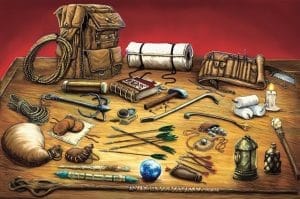
You could be the strongest adventurer alive but it doesn't matter if you starve to death. - Take note of the weight of everything you carry. Some things like scrolls and small objects are considered essentially weightless. But everything else (including your coin) has a weight. If you're carrying too much weight, it can slow you down (and for some classes, restrict your abilities). Keep track of this for your own sake. Later it is often a good idea to get a horse and saddlebags, or a cart to carry things for the party that aren't crucial. Though I wouldn't recommend putting all your gold into it—keep that on your person. (For reference, all coins are one pound for every 20 pieces).
- Other things that you should probably get: a lantern and oil, clothes (there's several different kinds), scrolls and ink especially for Wizards, bedroll or a tent, whetstone (if you carry a blade)
- Alternatively, after picking your weapon you can get an Adventurer's Kit, which just has a backpack, bedroll, flint and steel, whetstone, belt pouch, lantern and oil, an empty sack, waterskin, and whetstone. It also has rations for a week. It's an easy start kit if you don't want to overthink what you're carrying (all of that weighs 27 lb. plus your weapon and armor weight).
Now for the most important part. None of this is sacred. While the majority of DMs will follow most of the canonical rules, some may have different ideas and enforce rules slightly differently. When making a character, make sure you understand those rules, and I'd suggest asking your DM before you do all the character creation work. Not only because it may change the course of how you make your character, but also because you may decide you don't want to play a character under those rules. Also make sure you know what books and editions are being used.
If all of these still seems too much to take in, fret not. You can try out some pre-generated characters here, or there are typically some example characters you can use in Player Guides, and of course scattered around the Internet. Here's a blank, interactive character sheet for edition 3.5 as well, and below is the most commonly used character sheet for edition 5.
[scribd id=310428731 key=key-1gacl13QfDM8yCd4b80d mode=scroll]
Have a tip, or want to point out something we missed? Leave a Comment or e-mail us at tips@techraptor.net
